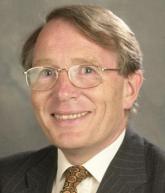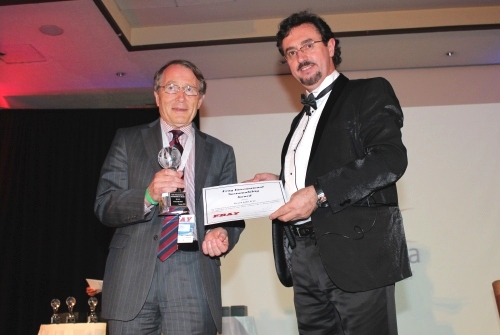
In 1958, Derek Fray won a Royal Scholarship to Imperial College, London University to Study Metallurgy. After graduating in 1961, with first-class honours, he undertook research on the properties of molten salts in the Nuffield Research Group, Imperial College. In 1965, he was awarded the PhD. Degree and the Matthey Prize for his research.
Between 1965 and 1968, he was an Assistant Professor of Metallurgy at the Massachusetts Institute of Technology teaching thermodynamics, heat and mass transfer and the chemistry of materials. His research interests were concerned with molten salts and the thermodynamics of steelmaking reactions.
In 1968, he returned to the U.K. to work in the research department of a subsidiary of Rio Tinto plc. as a group leader responsible for projects concerned with molten salt electrolysis, the treatment of dilute solutions, processing of zinc dusts and residues and the refining of aluminium containing alloys using molten salts.
In 1971, he was appointed University Lecturer in Materials Science and Metallurgy at the University of Cambridge teaching thermodynamics, extraction metallurgy and rate processes. His research interests were solid electrolytes and molten salts. He was also a Fellow of Fitzwilliam College, Bursar of the College, responsible for 125 staff, buildings and estates valued at £16m and investments worth millions of pounds, and Director of Studies in Materials Science and Metallurgy.
In 1991, he joined Leeds University as Professor of Mineral Engineering and became Head of the Department of Mining and Mineral Engineering in October 1991. His research interests included electrowinning from dilute solutions, properties of molten salts for the extraction of lithium, the treatment of electric arc furnace dust, the recycling of secondary materials, the control of oxide phases for the prevention of high temperature oxidation and the development of solid electrolyte sensors for the refining and on-line analysis of metallurgical phases and gases.
On 1 February 1996, he became Professor of Materials Chemistry, University of Cambridge and Professorial Fellow, Fitzwilliam College, and in 2001 he became Head of Department of Materials Science and Metallurgy, University of Cambridge. In 2001, he became Director of the Regenesys Technologies University Technology Centre concerned with fuel Cells. He continued with his research in molten salts, co- inventing the FFC Cambridge process and a method for the production of carbon nanotubes using molten salts.
Derek Fray has published over 420 articles on materials processing, one book and is cited as the inventor on over 340 published patents of which 150 have been granted Twelve projects are now under active industrial development both in the U.K. and Europe, Australia and the United States. In 1980, he was awarded the AIME Extractive Metallurgy Technology Award and in 1981, a Nuffield- NSERC Visiting Lectureship at various institutions in Canada, and the Sir George Beilby Medal by the Royal Society of Chemistry for the application of science. In 1987, he was awarded the Kroll medal by the Institute of Materials and, in 1989, he was elected to the Fellowship of the Royal Academy of Engineering. In 1991, he was awarded the John Phillips Medal by the Mineral Industry Research Organisation. In 1995, he was made an Honorary Professor at the University of Science and Technology, Beijing, China and in 1996 was appointed as a Visiting Professor, University of Leeds. In 2000, he was chosen to receive the Minerals, Metals & Materials Society's 2000 Extraction and Processing Distinguished Lecture Award and, in 2001, he was awarded the Billiton Medal by the Institution of Mining and Metallurgy, the 2001 Light Metals Reactive Metals Award by TMS and a Gold Medal by the Institute of Industrial Science, University of Tokyo for his work on electro-deoxidation. One of the industrial processes undergoing commercialisation, COSMA - the addition of sodium to aluminium alloys, was given a EU Engineering Award 2002. In 2003, he was awarded the Gold Medal by the Institute of Materials and the Armourers and Brasier's Award by the Royal Society. In 2006, he was made an Honorary Professor at the Hebei Polytechnic University, China. He was also elected a Fellow of the Royal Society of Chemistry and is also chairman of the RSC Molten Salt Discussion Group. In 2008, he was elected a Fellow of the Royal Society and in 2009, he was awarded the first Federation of European Materials Societies FEMS Material Innovation Prize and Medal and an Honorary Professor of Lioaning University of Science and Technology, China.
He has consulted widely on the use of solid electrolyte sensors, applications of molten salts, electrowinning from aqueous solutions and the recycling of metals. He was a founder director of Ion Science Ltd., a company developing gas detection equipment and the company now employs 50 people, Environmental Monitoring and Control Ltd., a company developing high temperature sensors for the metallurgical and other industries now employing 12 people, British Titanium plc., a company now in liquidation, Metalysis Ltd., a company developing the FFC Cambridge Process employing 50 people, Camfridge Ltd., a company developing magnetocaloric alloys for refrigeration, air conditioning and de-humidification, employing 5 people, Inotec AMD Ltd., a company developing an oxygen generating device for wound healing and employing three people and, finally, Chinuka Ltd. a company developing a process for the electrorefining of titanium ores to titanium. Overall, these companies have raised about £45m.

Prof. Derek J. Fray, Receiving the Fray International Sustainability Award from Dr. Florian Kongoli at FLOGEN SIPS 2011